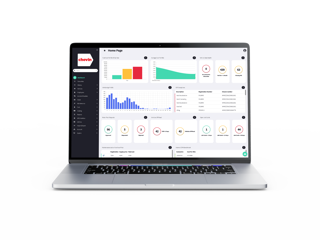The Government is being urged to introduce an integrated fuels strategy that supports liquid petroleum gas (LPG) and helps local authorities convert their fleets to less polluting forms of fuel.
UK LPG, the industry trade representative body, alongside supplier Autogas, has released a manifesto setting out its vision for the industry in the UK.
As part of a number of recommendations, it is urging the Government to replace individual fuel strategies, such as the plug-in grant scheme, with an integrated approach that supports gaseous alternatives such as LPG.
Linda Gomersall, general manager of Autogas, said: “It is essential that the Government takes an integrated approach to road fuels policy, to avoid the belief that one fuel is favoured over another, or that there is one solution to a challenge that has differing levels for different users, regions and requirements.”
More than 150,000 vehicles are powered by LPG in the UK, with the fuel available from more than 1,400 sites.
It emits significantly fewer harmful pollutants such as CO2, NOx and particulate matter than petrol or diesel models. And, thanks to its better environmental performance, LPG attracts a lower fuel duty than petrol or diesel, meaning that it currently retails for around 61.6p per litre (ppl) compared with 113.3ppl for diesel and 106.5ppl for unleaded petrol.
Gomersall said: “LPG autogas offers fleets the benefit of low pump prices that could slash fuel costs by 40% – backed by the Government’s firm commitment to a 10-year duty trajectory – while our analysis shows that it produces 14% less well-to-wheel CO2 than petrol and 10% less than diesel, highlighting LPG’s value and relevance today as a low-carbon alternative fuel.”
The industry manifesto comes as Autogas undergoes a rebrand and a new conversion network aims to make the switch to LPG easier.
The new brand identity is to be rolled out across the company’s 215 refuelling sites across the UK.
In addition, the company has launched a new website, which provides motorists with information about the cost-saving, health and environmental advantages of LPG, as well as helping them find a centre that can carry out conversions.
Members of the Autogas approved conversion scheme were hand-picked by the company after rigorous assessment to ensure they could deliver work and service to the very highest standards.
Furthermore, all workshops are also approved members of UK LPG, meaning they are subject to ongoing scrutiny and assessment.
Gomersall concluded: “Throughout the world, governments are thinking imaginatively about incentives and schemes to encourage and support the manufacture of LPG autogas-ready vehicles, consumer take up of LPG autogas and encouragement to convert to LPG autogas. This type of approach is absent in the UK.
“The UK needs to follow European counterparts, such as Germany, which has already introduced 10-year low-duty guarantees and produces LPG models with over 500,000 LPG cars currently on the road, and is much more advanced in terms of LPG usage.”
























John Elliott - 28/07/2015 18:14
I drive a Hyundai Santa Fe, this car was converted to LPG in 2014, Although the emissions are 0 The road fund is in excess of £460' Letters to the Minister of Transport & Eric Pickles dismissed the rate as that is what it is so that is what I must pay. Where is the incentive to convert and go green